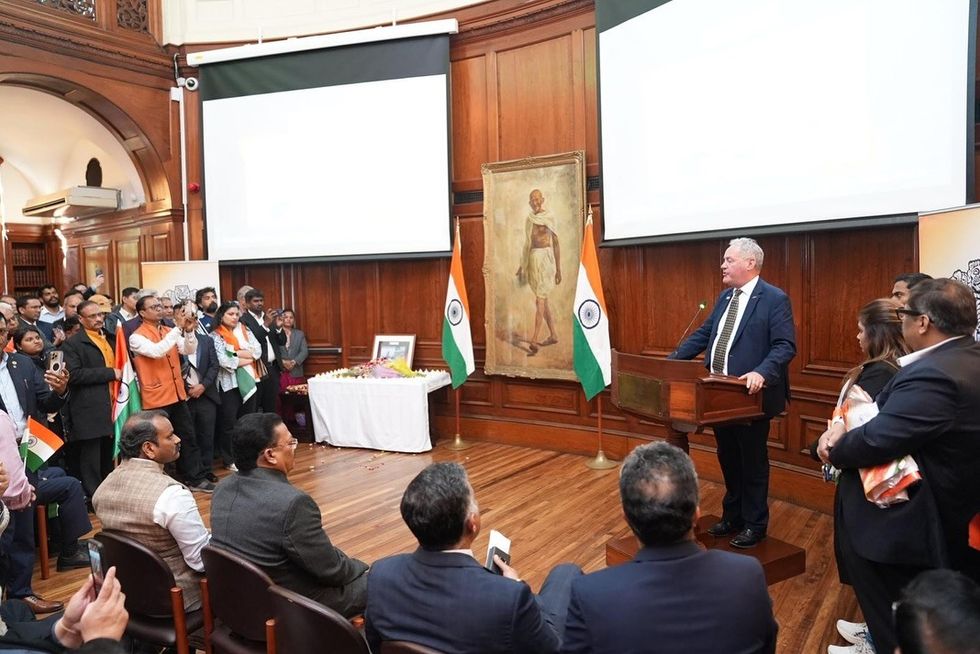The director of the World Health Organisation (WHO) said earlier this month that ingredients in four cough syrups manufactured in India may have been linked to acute kidney injuries and deaths of 66 kids in the west African country of The Gambia and that the products might have also been sent to other nations.
The issue soon exploded and authorities in India launched an investigation and stopped all production by the company that made the syrups.
Fast forward and this week, authorities in Indonesia have been found to ban sale of all cough syrups across the country. They have also started a probe into the deaths of over 130 people -- mostly children affected with acute kidney injuries this year. There has been no proof yet that the tainted medicine was responsible for those deaths even though contaminated cough syrups have been found in some of the children's homes, the New York Times reported.
It has been alleged that the four medicines linked to the deaths in The Gambia were manufactured by Maiden Pharmaceuticals in New Delhi which exports medicines to various developing countries.
On October 5, WHO chief Tedros Adhanom Ghebreyesus said the agency was carrying out an investigation. The same day, a medical product alert was issued in which the body said that analysis of the four medicines had found "unacceptable" levels of the toxic diethylene glycol and ethylene glycol. The Gambian health authorities did not waste any time to recall all the four products.
What the Gambian police said
The Gambian police later said that the deaths of the children from acute kidney injuries were linked to the cough syrups manufactured by the Indian company, the Times report said.
The Indian authorities recently said they suspended all manufacturing by the firm after finding violations at its factory in the northern state of Haryana, outside New Delhi. According to the state drug regulator, the tainted products sold in The Gambia were made in the Haryana factory in December last year.
The Indian government set up a committee to probe the tainted medicines and the children's deaths in The Gambia. Maiden Pharmaceuticals said it was cooperating with the investigators.
No proof yet that Indonesian deaths are related
However, there is no evidence as of now that the deaths in Indonesia are related.
While the Indonesian authorities banned the syrup-based medications and probing the deaths, the country's health minister Budi Gunadi Sadikin on Friday (21) said that cough syrups having diethylene glycol and ethylene glycol were found in some of the homes where the children died.
Penny K Lukito, the chief of Indonesia’s food and drug agency, said earlier that no products made by Maiden Pharmaceuticals, including the four medicines linked to The Gambia deaths, were registered in the South-east Asian nation, the Times report added.
It is very unlikely that an imported drug could be legally sold in Indonesia without getting registered.
While India has said that Maiden Pharmaceuticals' tainted products were sent only to the African country, the WHO alleged that they may have been distributed to other countries as well.
Diethylene glycol and ethylene glycol are clear, colourless, and syrupy alcohols that are used for antifreeze and other industrial applications.
The effects of consuming them can cause headache, abdominal pain, vomiting, diarrhea, and inability to pass urine. The chemicals can also cause harm to the liver, kidneys, and central nervous system.
In the past, diethylene glycol has been a cheap substitute for glycerin.
There have been instances of mass poisonings in the past.
More than 80 children died in Nigeria in 2009 after taking a medicine for teething pain that had diethylene glycol. In 1998, more than 40 children died in India in two separate instances for taking medicines that contained diethylene glycol.
Gambia deaths a blow for 'pharmacy of the world'
India supplies 45 per cent of all generic medicines to Africa and the tragedy in The Gambia is a blow to the image of the South Asian nation which is known to be the "pharmacy of the world".
The Indian government was not taking the matter lightly, Reuters cited one of the country's health officials as saying. On the condition of anonymity, he said the government would not tolerate any wrongdoing but at the same time, it was important to know what exactly happened in The Gambia. He refused to agree with criticism that health regulations in India, especially at the state levels, were not strict.



















 Bob Blackman MP speaks during the event
Bob Blackman MP speaks during the event